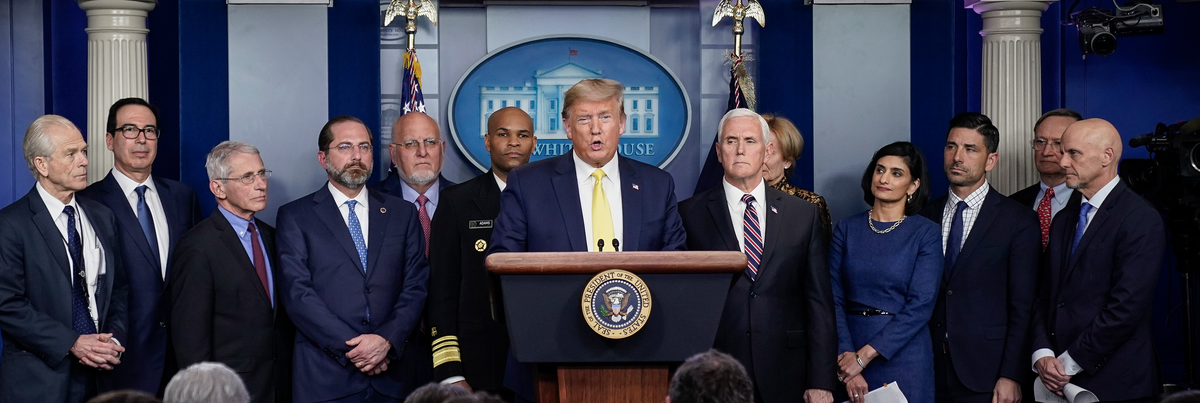Americans are wearing face masks – the percentage reporting they are doing so in Economist/YouGov Polls has risen to nearly 80 percent in the last few months. Many want to see others — including President Donald Trump — wear face masks as well.
Republicans, who tend to report wearing masks less than Democrats do, are divided. As many say the President should be required to wear a mask (44%) as say it’s up to him (44%). About one in 11 Republicans (9%) say he should not wear a mask. After the Centers for Disease Control and Prevention recommended wearing them in early April, President Trump responded: “This is voluntary. I don’t think I’m going to be doing it.”
Last week, after two people working in the administration tested positive for COVID-19, every White House staffer except the president were required to wear masks everywhere in the White House except their desks. Republicans are more supportive of having White House employees, as well as Congress, wear masks. Two in three Democrats would like all federal government staffers to be masked. Majorities also favor cashiers, police officers, firefighters, and Postal Service workers wearing face masks.
The president’s announcement that he has been taking hydroxychloroquine took place too late to be included in this poll. Three weeks ago, four in five Americans in an Economist/YouGov Poll had heard something about hydroxychloroquine as a suggested treatment for COVID-19. Only a third then called it even possibly effective against the virus. But a majority of Republicans (55%) thought it could be effective, possibly following the president’s endorsement.
Half the public disapproves of how the president is handling the coronavirus, the highest figure recorded in this poll throughout this outbreak, eight points higher than the percentage who approve. The president has had relatively mixed reviews on his handling of the virus in recent weeks.
As in previous polls, opinion of the president’s performance on this may also reflect how Americans judge the federal government’s handling of the outbreak. One-third describes the national government’s performance as excellent or good. But state and local governments fare better: half the public believes those two levels of government are doing a good or better job.
Two in five Americans say President Trump’s thinking about coronavirus is too optimistic, while about three in 10 adults (31%) say it is realistic. One in 10 call it too pessimistic. This is very different from their view of Dr. Anthony Fauci, the Director of the National Institute of Allergy and Infectious Diseases, and his thinking about the coronavirus. A majority call Dr. Fauci’s opinions realistic, though more than a third of Republicans call them too pessimistic.
These quite distinctive evaluations of President Trump and Dr. Fauci also apply when Americans are asked to evaluate their medical advice. The partisan differences are clear. While Fauci’s medical advice is trusted by more Americans than trust the President’s advice, Republicans are different. More of them trust what the President says than trust Fauci.
See the toplines and crosstabs from this week’s Economist/YouGov Poll
Related: Most Americans approve of voting by mail, but concerns about voter fraud trouble Republicans
Image: Getty










